Previous
Next
Salvia hispánica L.
Chia seeds (Salvia hispánica L.) are small black seeds. They are one of the oldest sources of nutrition in the world, and it is documented that they were consumed by the ancient Aztecs and Mayans since 3,500 B.C. The Aztecs and Mayans appreciated them for their ability to provide energy.
Chia seeds offer the highest combined vegetable source of Omega 3, which improves metabolism by helping the transportation of nutrients through the body. It also contains magnesium and fiber, as well as a wide range of vitamins, minerals and antioxidants. Chia seeds contain all nine essential amino acids and is a complete source of protein.

Functionality
Chia contains antioxidants, vitamins A, B, E, protein and is an excellent source of fiber, calcium, phosphorous and iron. For instance, 100g of chia seeds have four times more calcium than 100 ml of milk. This superfood is an excellent source of essential fatty acids so adding a tablespoon of Chia to your diet (15g each day, provides 3g of omega 3, 6g of dietary fiber and 3g of protein).
Benefits
- Chia is the main vegetable source of Omega-3 fatty acids.
- Helps in the maintenance of good cardiovascular health.
- Improves nervous and immune systems.
- Helps muscle development and tissue regeneration.
- Often used as an energetic source, especially in sports.
- Contains antioxidants, proteins, amino acids, vitamins, minerals and fiber.

Suggested use
The seed can be added to juices or salads. It is also used in making protein bars or added to oatmeal for breakfast.
You can add chia powder to your favorite juice. It is also great when mixed with flour for baking bread, pancakes, cupcakes, brownies or cookies
Presentations

Location


